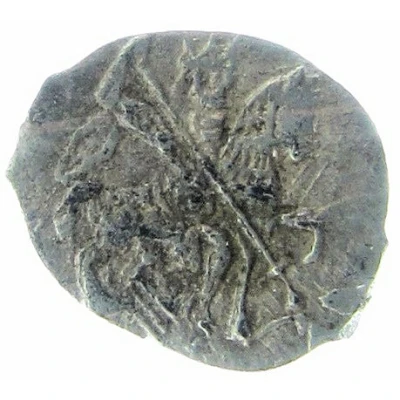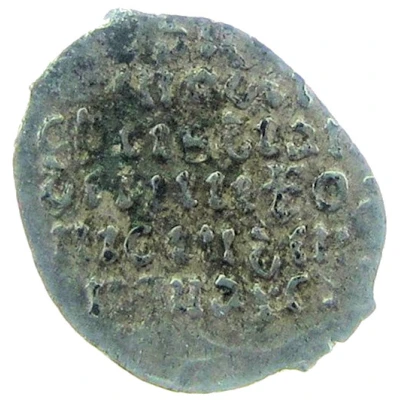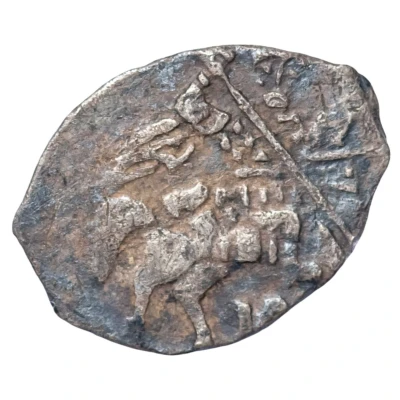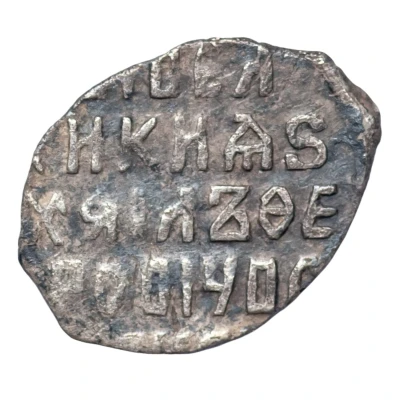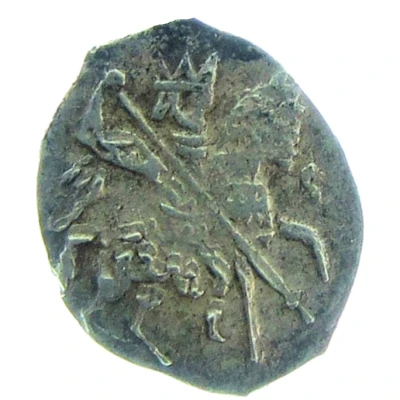
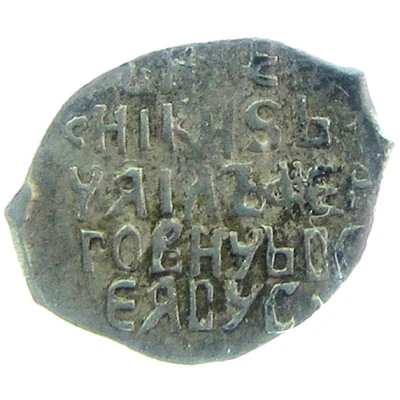

© Kladokop
Denneng Danish imitation of Kopeck Mikhail Fyodorovich ND
1619 year| Silver | - | - |
| Issuer | Russian Empire |
|---|---|
| Tsar | Michael I (1613-1645) |
| Type | Standard circulation coin |
| Year | 1619 |
| Value | 1 Kopeck (1 Копейка) (0.01) |
| Currency | Rouble (1533-1717) |
| Composition | Silver |
| Shape | Round (irregular) |
| Technique | Hammered (wire) |
| Orientation | Variable alignment ↺ |
| Demonetized | Yes |
| Updated | 2024-10-07 |
| Numista | N#111718 |
|---|---|
| Rarity index | 100% |
Reverse
Cyrillic inscription.
Script: Cyrillic
Comment
Danish Denneng with the name of Mikhail Fedorovich, imitation of a Kopeck.Minted by Albert Dionysus in Gluckstadt, Denmark.
Interesting fact
One interesting fact about the Denneng coin is that it was used as a form of currency in the Russian Empire during a time of economic turmoil. The coin was introduced by Tsar Mikhail Fyodorovich in 1619 as a replacement for the traditional Kopeck coin, which had become devalued due to excessive minting. The Denneng coin was made of silver and had a unique design, featuring the image of a horseman on one side and the Russian coat of arms on the other. Despite its introduction during a time of economic uncertainty, the Denneng coin remained in circulation for over a century and is now considered a rare and valuable collector's item.
